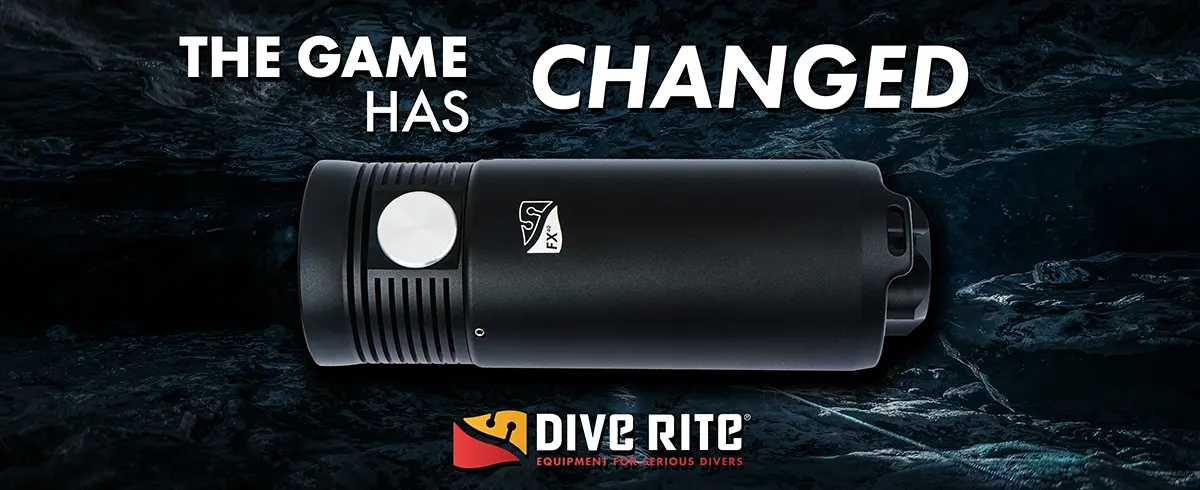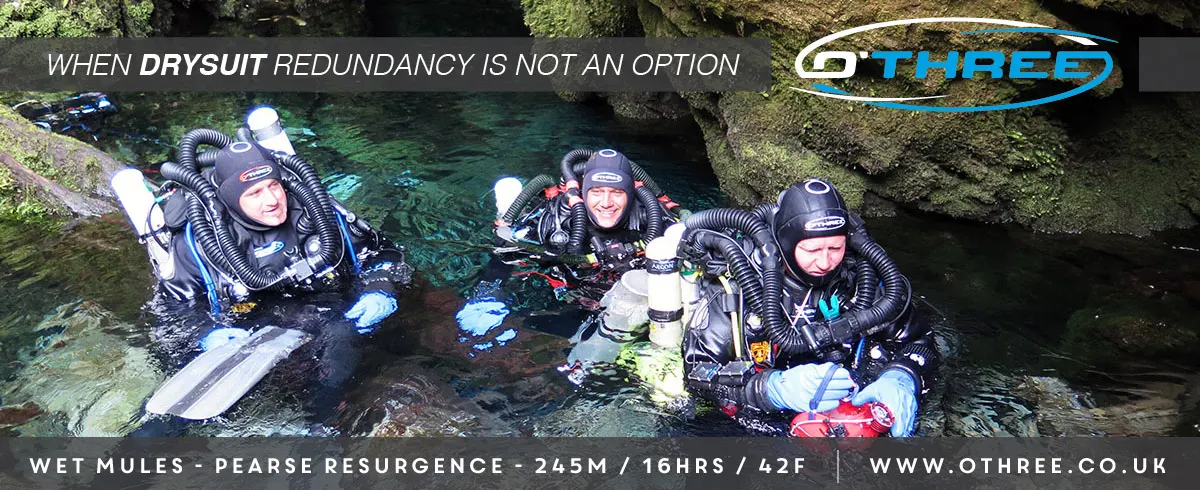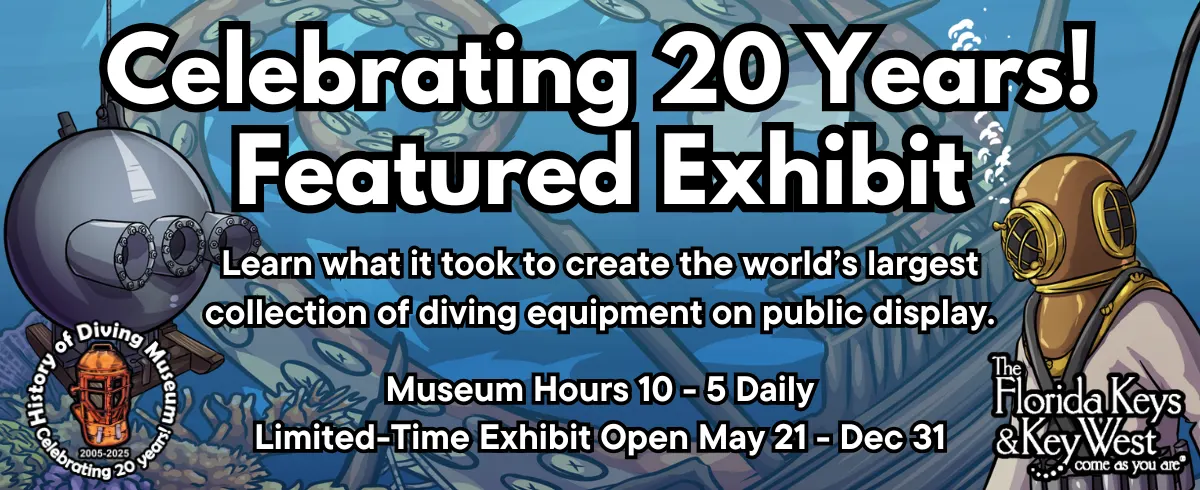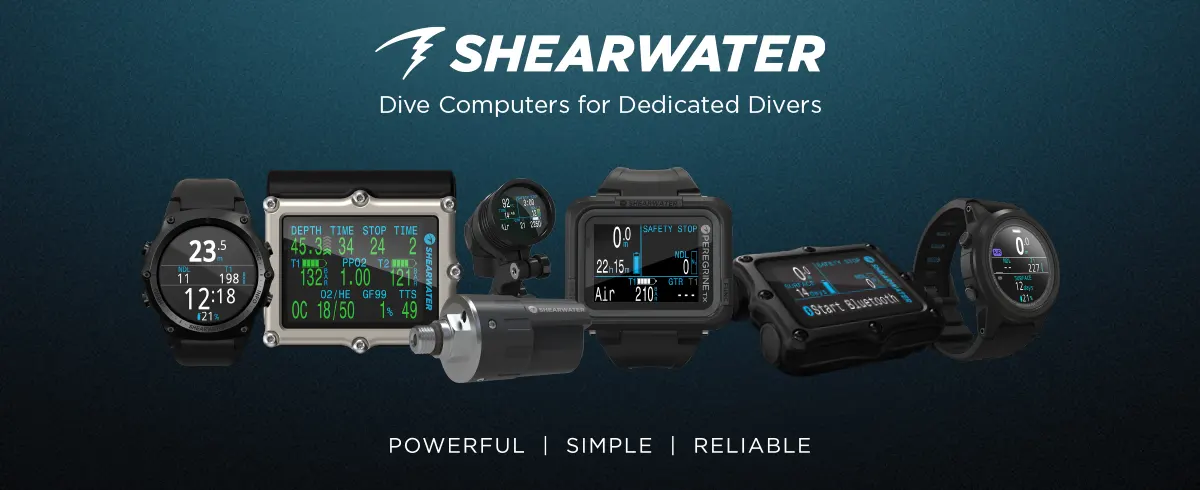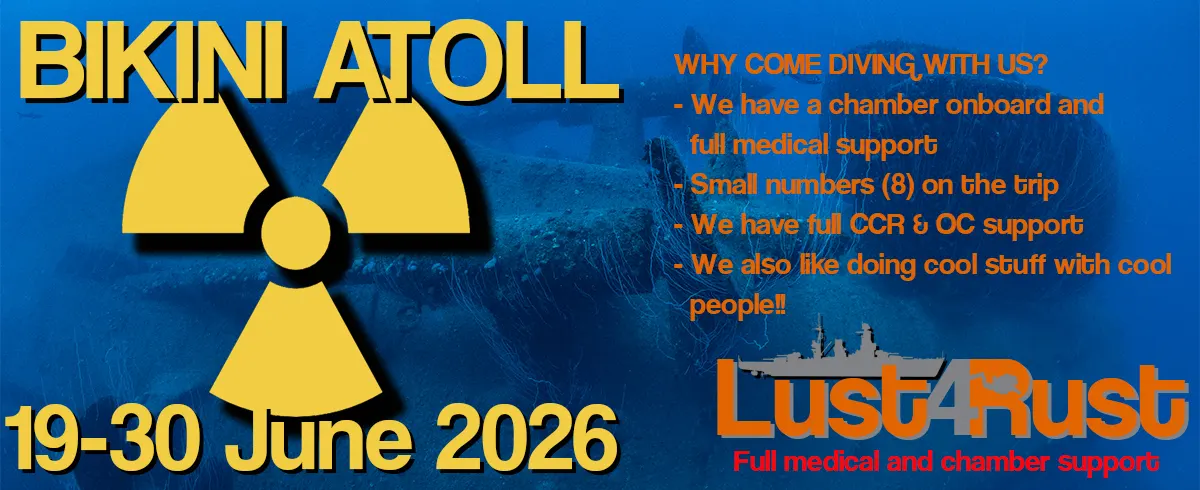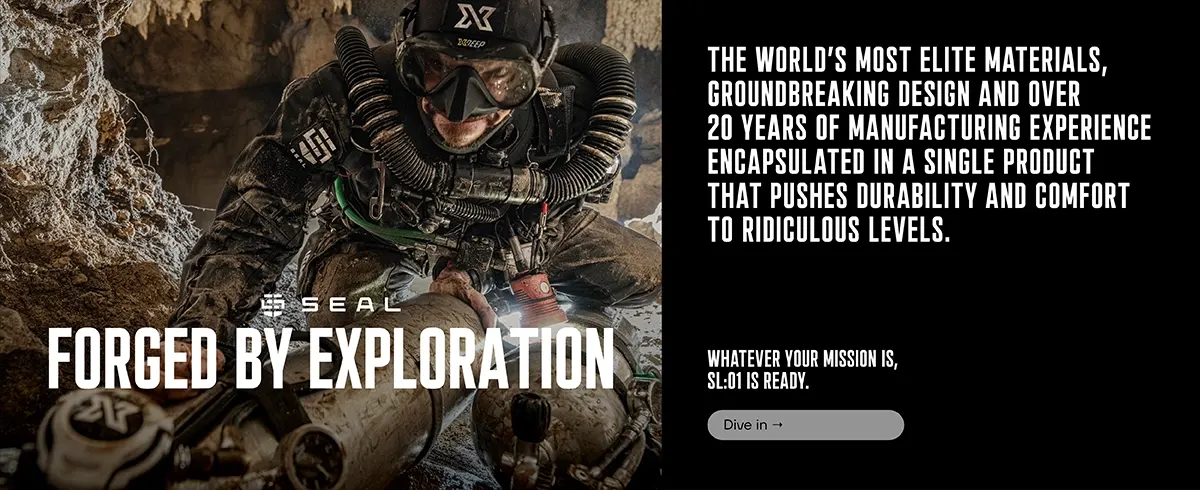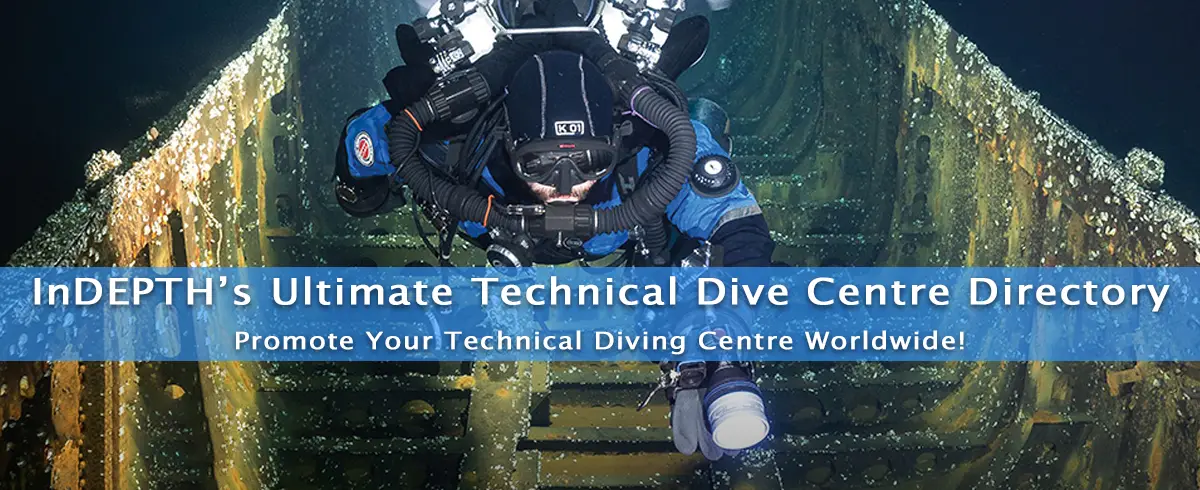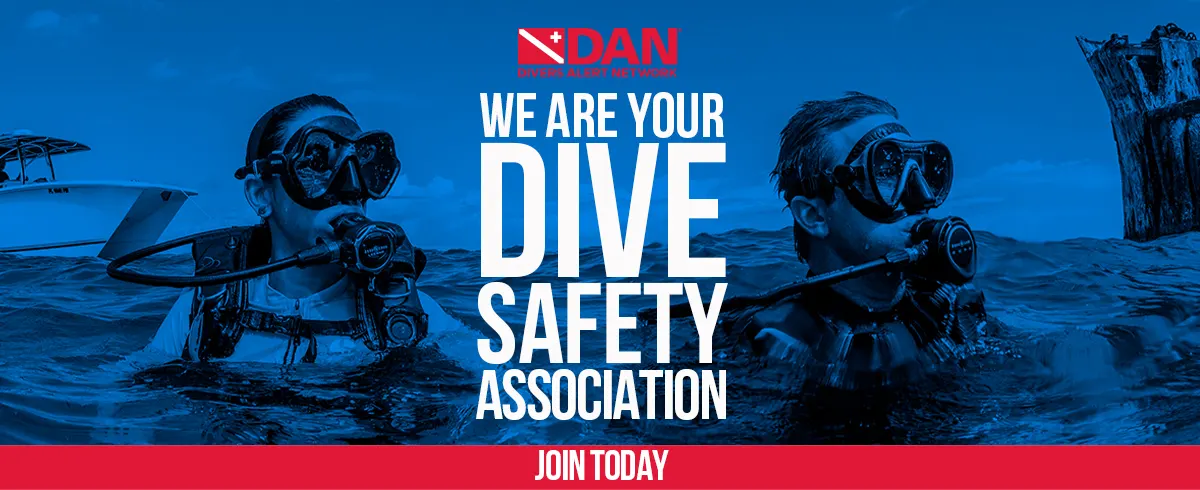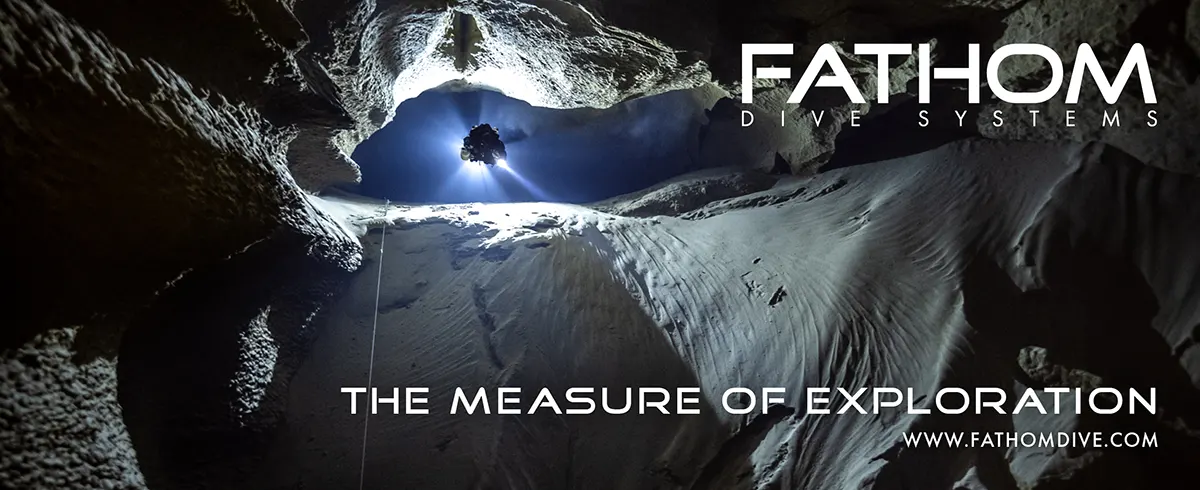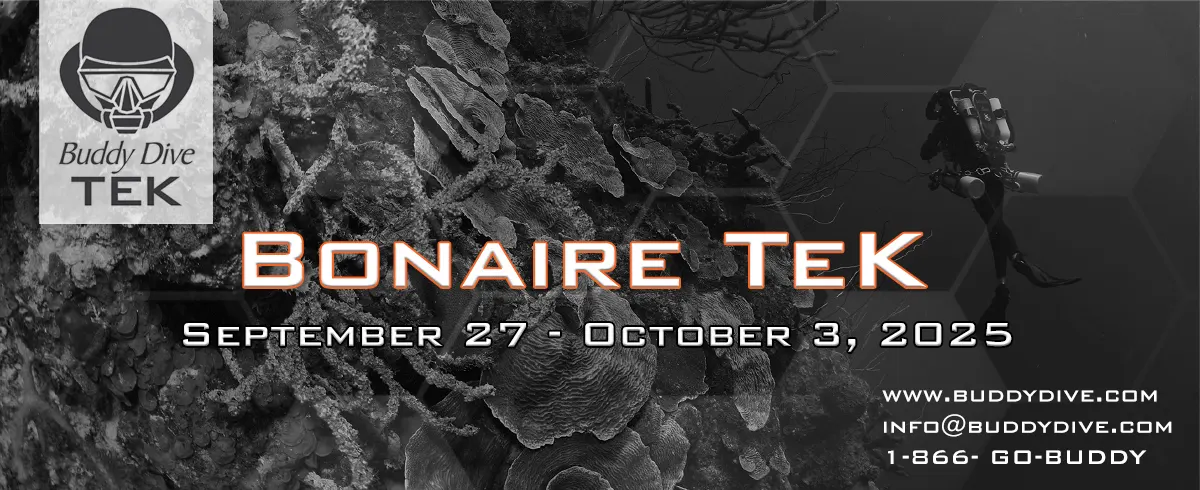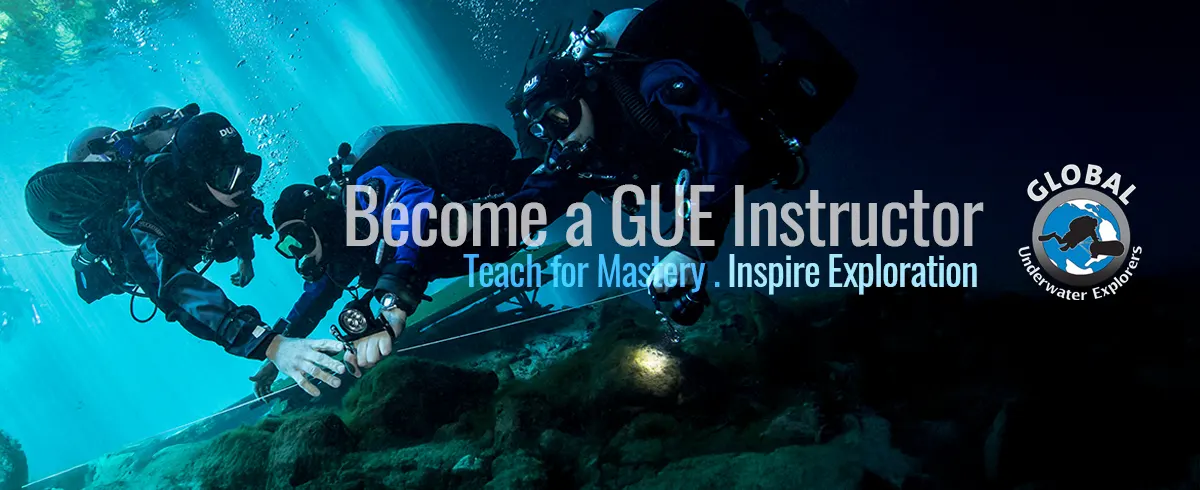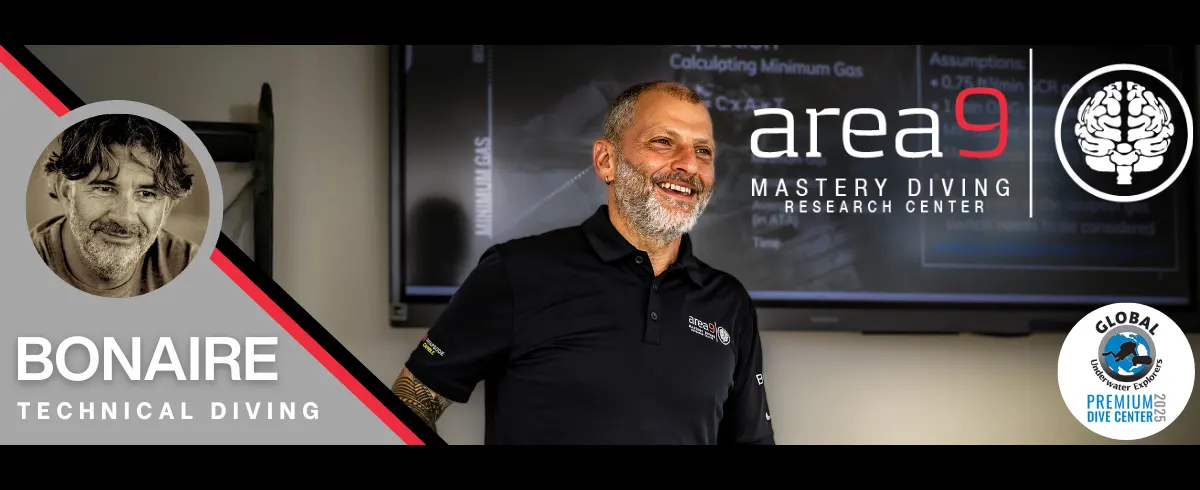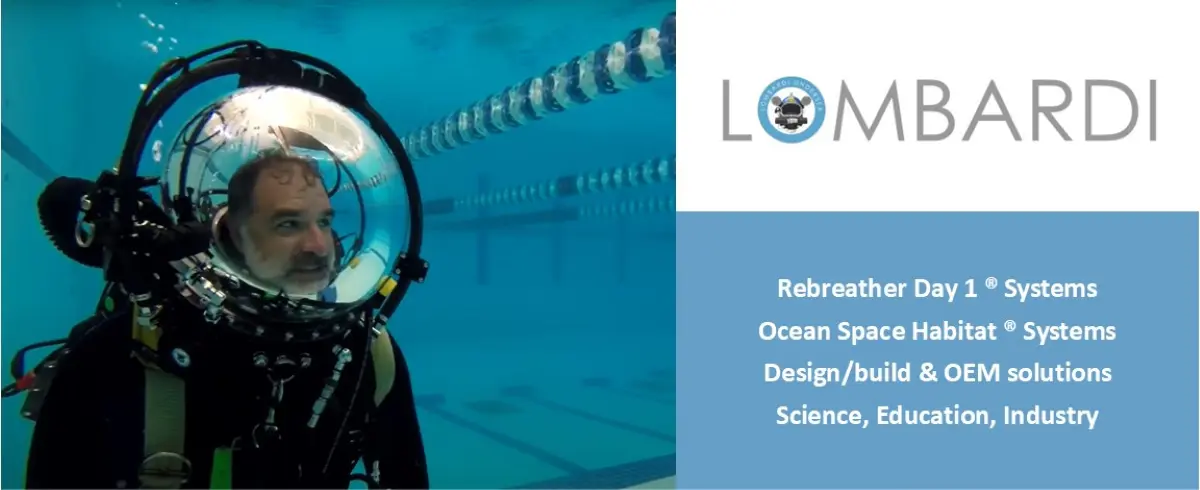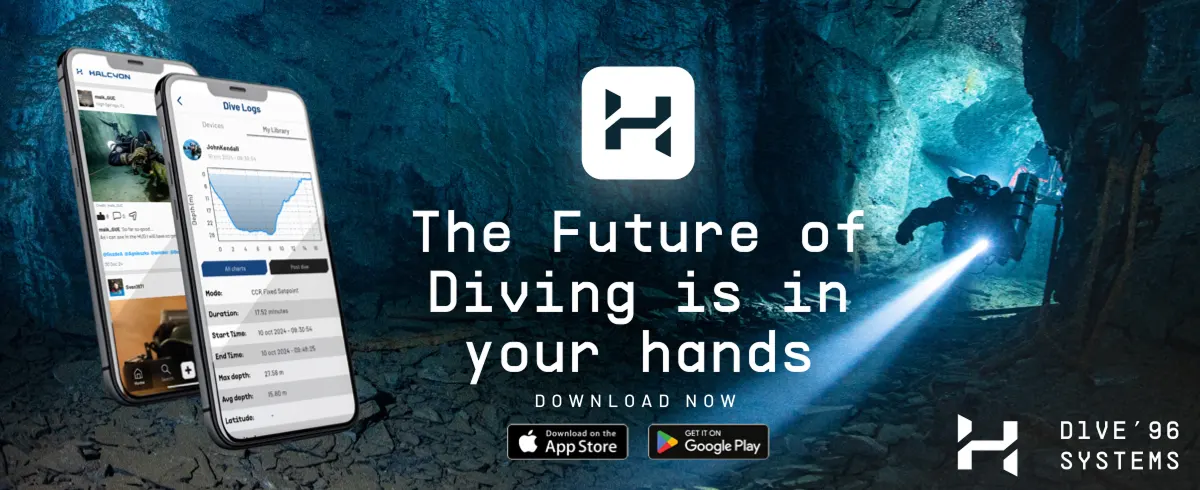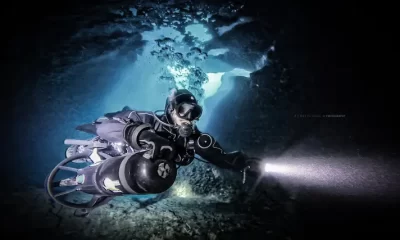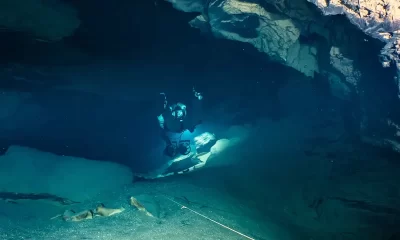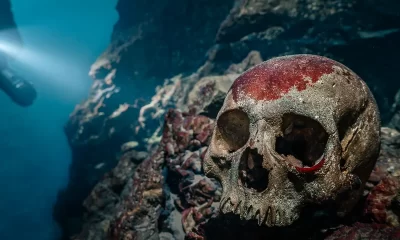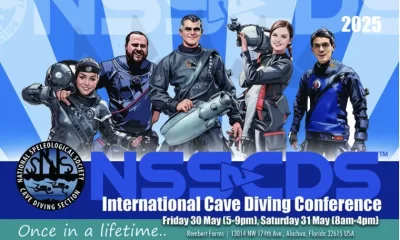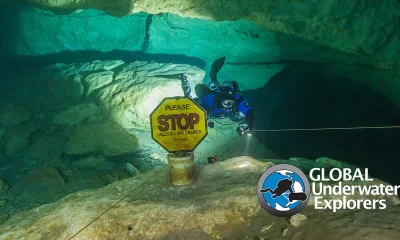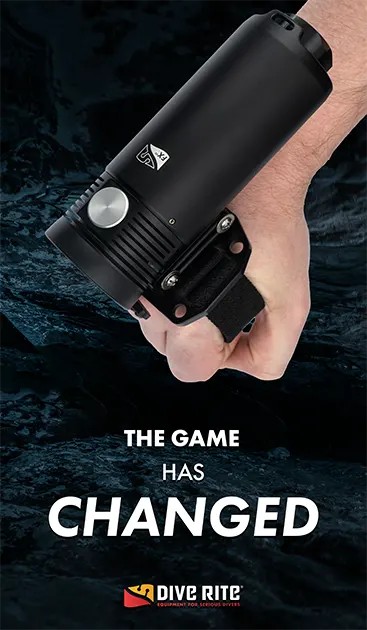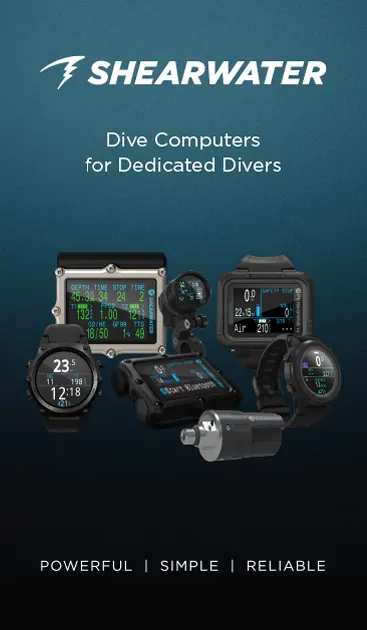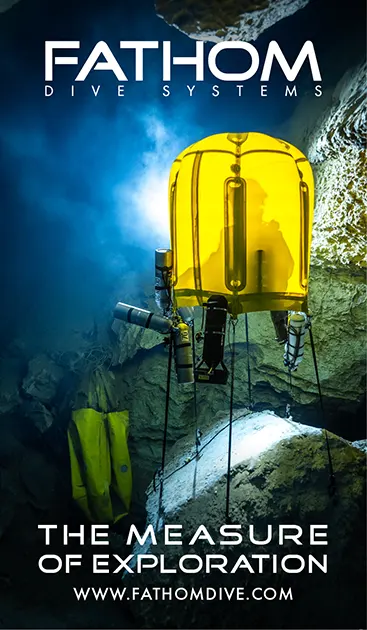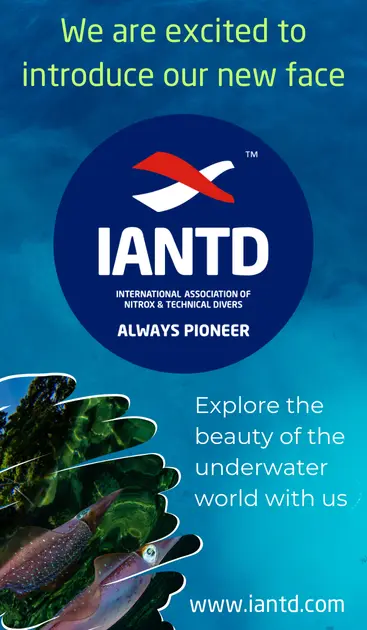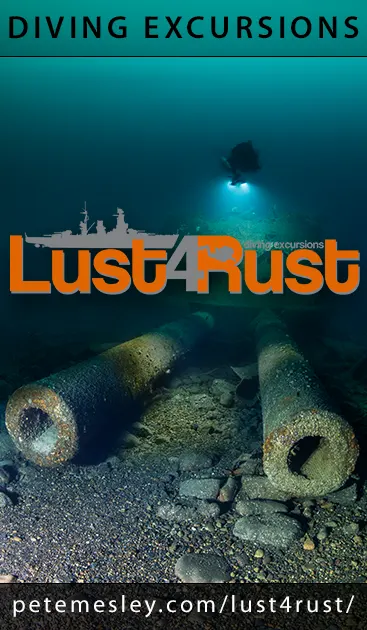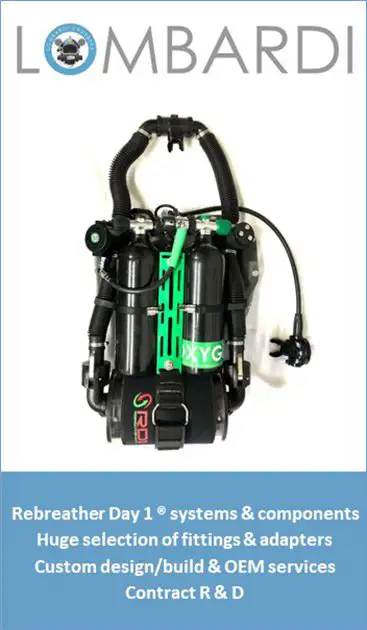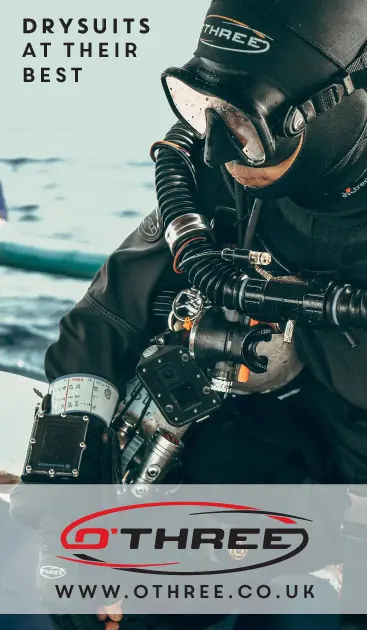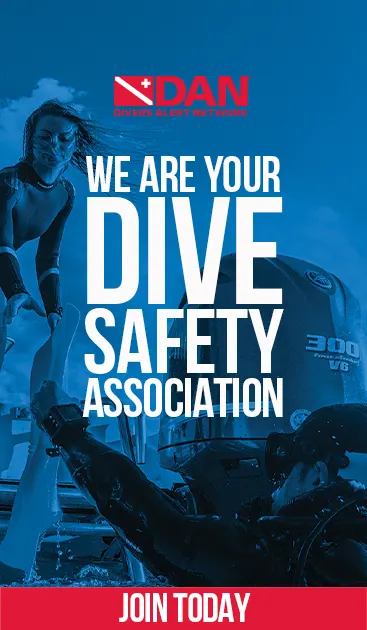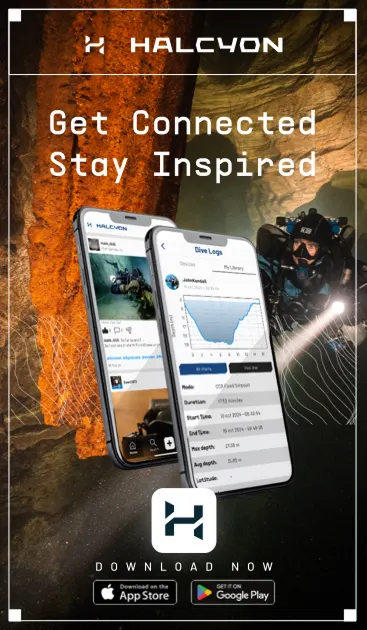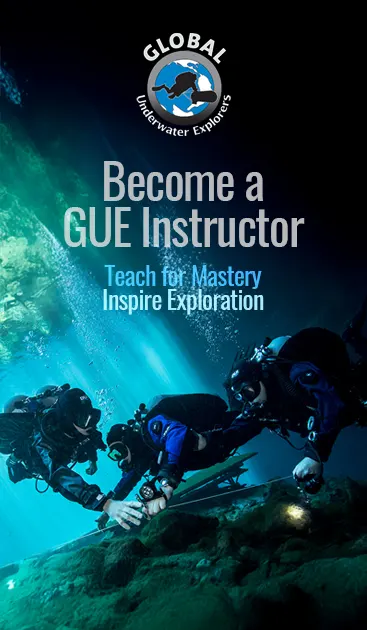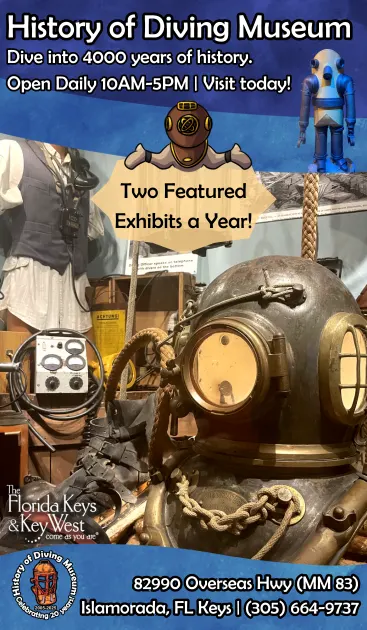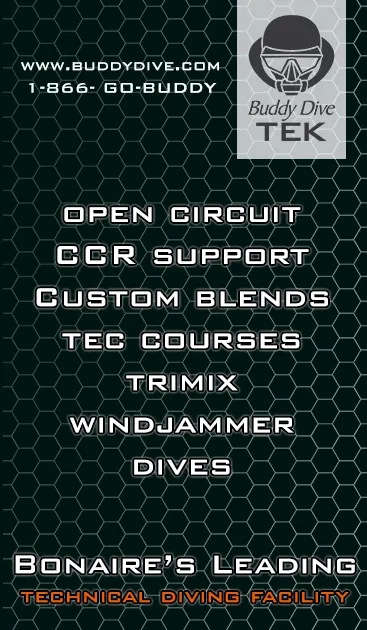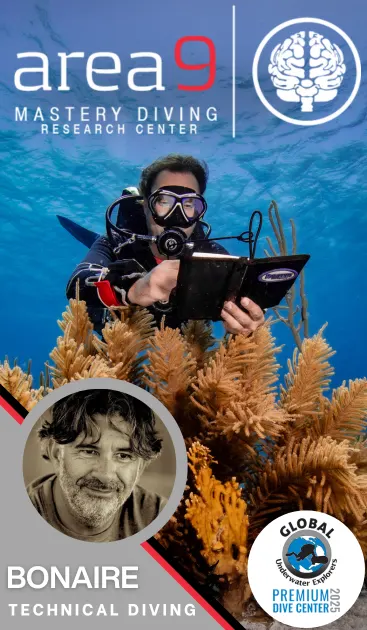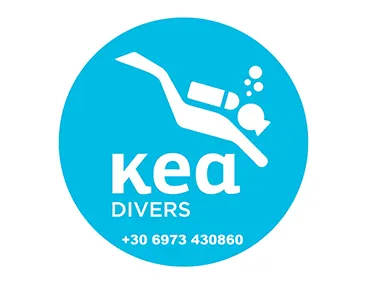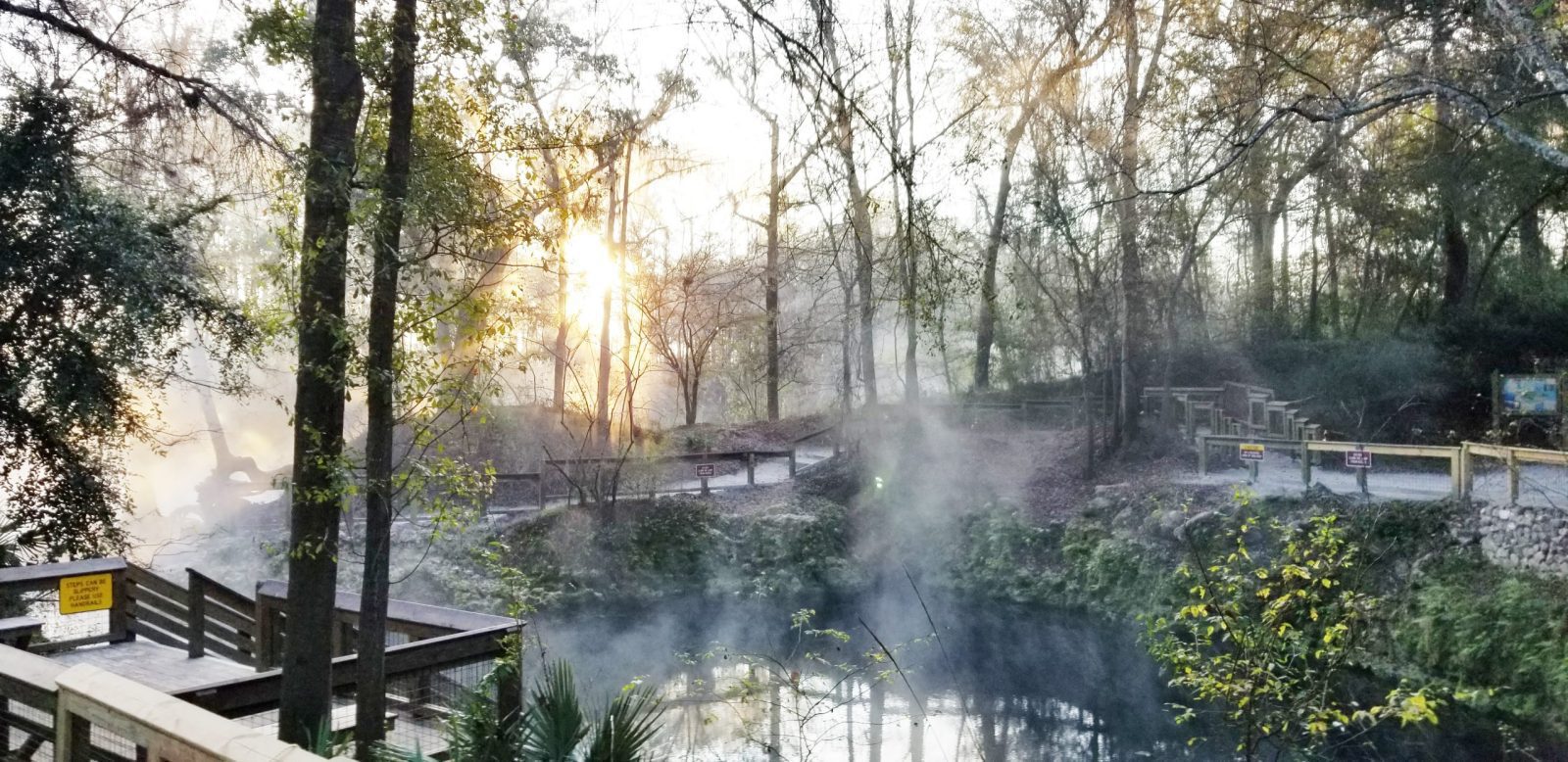

Cave
An Underground Perspective on GUE’s Cave Curriculum
It’s difficult to objectively compare and contrast technical courses from different training agencies, and many agencies are less than enthused about the prospect. So when I learned that NSS-CDS cave instructor and training council member, Chris Brock had completed GUE’s cave curriculum, I was eager to get his perspective. On the record of course!
by Michael Menduno
It’s difficult to objectively compare and contrast technical diving courses from different training agencies, and the agencies themselves rarely encourage the juxtaposition. Each has its own particular philosophical bent, focus, and of course, what the organization deems its secret sauce, which can be hard to quantify. As a result, thoughtful, informed perspectives are hard to come by, though they can be illuminating when you’re trying to grok the depth and breadth of our tech community’s education ecosystem.
Needless to say, I was excited to learn that my former cave instructor, National Speleological Society Cave Diving Section (NSS CDS) instructor Chris Brock, had taken GUE’s Cave 1 and Cave 2 courses—the equivalent to the CDS Cave Diver course with decompression procedures and its Stage Cave Diver course. Note that Brock is also a member of the CDS Training Council and an Instructor Sponsor. Accordingly, I reached out to him, hoping to query him on the record, of course, about his experience.
The circumstances of the 52-year-old cave instructor’s participation in GUE classes were somewhat unique. Brock had agreed to assist his friend and fellow cave diver Meredith “Mer” Tanguay, who was completing her GUE Cave 2 Instructor Exam with Instructor Examiner (IE) Daniel Riordan in late 2020, in the midst of the global pandemic.
Tanguay presciently acted to “bulletproof” her IE class—Mer managing Mr. Murphy—by making sure she had qualified ‘students’ at hand in case there was a dropout. Brock had previously completed Cave 1 under Tanguay’s tutelage in preparation for that eventuality, so when she received a cancellation a week before Cave 2, he was ready to go. What a guy!
I should note that Tanguay, principal of Wet Rocks Diving, is one of GUE’s ardent, hard working recreational, technical, and cave diving instructors, a Fundamentals Instructor Trainer (IT), and an IE for Rec 1 & 2. She has been diving with GUE for 18 years. She was the first female to successfully complete her GUE’s Cave 1 and Cave 2 instructor rating, and is currently the only one teaching both GUE Tech and Cave, and GUE’s only female Cave 2 instructor, which until now had long been the sole province of the boys.
As luck would have it, I was able to connect with Brock, a former public school teacher who is also a TDI, IANTD and PADI tech and cave instructor, to ask him about his experience with the GUE cave curriculum. Here’s what the man had to say.
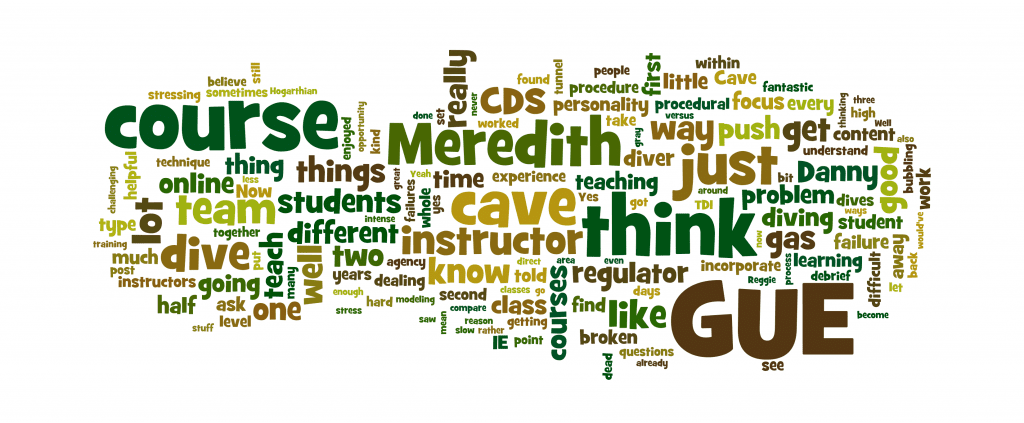
Let me ask, if you had to pick one word or phrase to describe your experience taking Cave 1 & 2, what would it be?
Chris Brock: Procedural! Everything you do in GUE has a set procedure. For me, having been away from GUE for 10 years when I took my “Fundies” class, it was hard at first to be procedural when I have so much muscle memory from just doing the dives all these years without thinking about it. It was difficult for me. It was very procedural and I had to slow down.
Danny had a memorable piece of advice for me. He said, “You just have to slow down because your mind is thinking so fast about it and the way you do it. You have to just take it step by step and slow back down.” So, my takeaway at this point is that it was ‘highly procedural.’
Ha! GUE IE Guy Shockey, describes the work of GUE courses is teaching divers “how to do simple things precisely.” What did you like most about the courses?
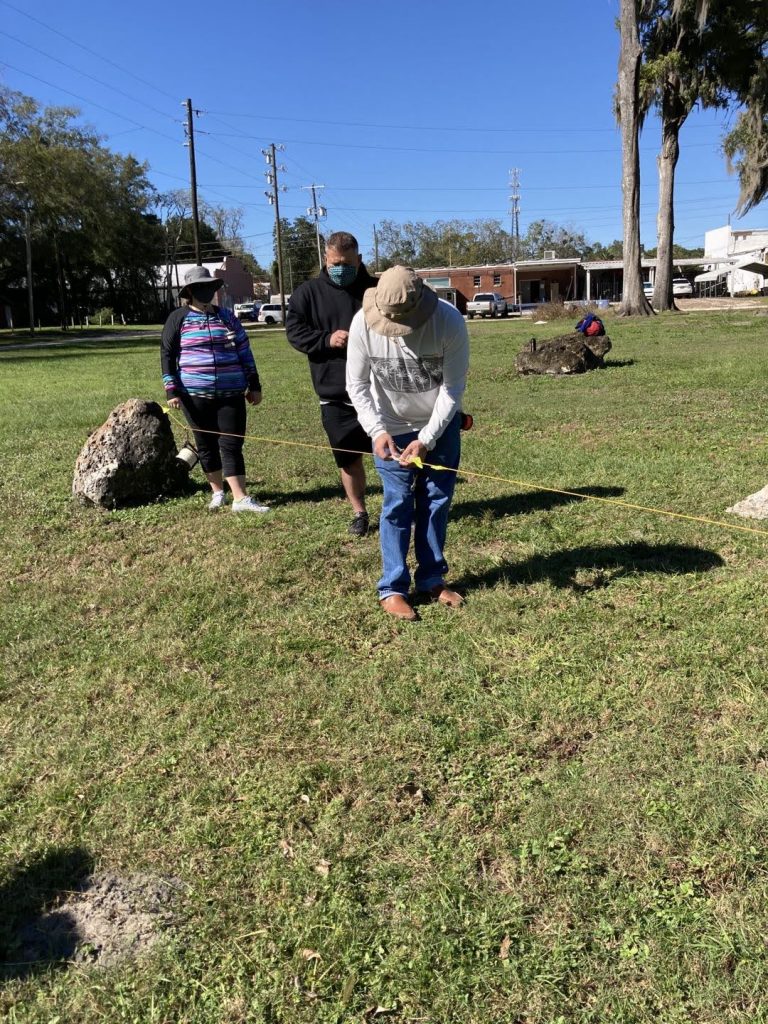
What I liked most about the course was seeing different ways of teaching the same concepts that I teach. I found a lot of value in how GUE does gas switches. I plan to do that from now on and incorporate it into my teaching.
Now, will I encourage my students to dive in a Hogarthian configuration? I don’t know that I can do that fully, but I think we can incorporate Hogarthian principles into every configuration, even if they choose to use a chest strap and things like that. I think there is simplicity there as well as some tips and tricks that I’ve picked up from Danny and Meredith that will be helpful to students.
Danny also addressed some of the things that I’ve seen as a weakness to it, to the Hogarthian configuration. He showed me a lot of little tricks that I had not seen before that I will also incorporate. There’s a lot of stuff that I’m going to try to add into my courses as well.
What did you like least about the courses?
I told Meredith and Danny this too: I think the strategy of GUE from what I saw over the two weeks of class, is a whole lot of push, push, push, push procedure. And they push the intensity level so high that some divers don’t have time to assimilate it and let it sink in before the instructors push students further.
I think you should push a diver only so far, let them relax for a little bit and understand what they’re doing, then push them again. And in that sense, I don’t think there’s enough time for assimilation because there was constant intensity on all 10 dives. There was a push on all of it. So that’s one thing I did not like.
Anything else?
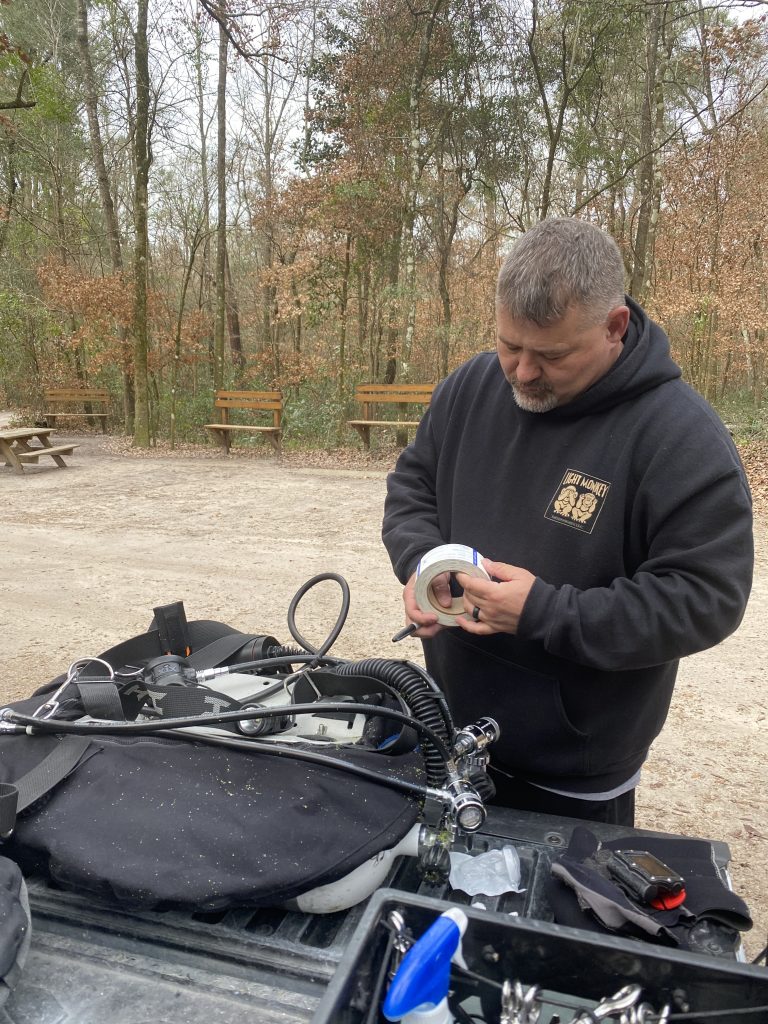
The second thing I did not like was that in some ways I found it too procedural to where they were stressing valves, stressing lights, stressing and breaking everything rather than teaching these people how to cave dive. [Ed. Note: GUE tech and cave classes focus heavily on scenario i.e. failure-based training.]
Teach me proper technique in this type of tunnel, so that I can transfer that learning on how to do it in that tunnel over there. Or teach me proper technique for diving in flow, so I can transfer it to how to dive in a high flow tunnel, that sort of thing.
There wasn’t enough of that modeling, in my opinion. There wasn’t enough of that kind of modeling from the instructor showing me how to cave dive. I mean the instructor would correct things. She would say, “Your frog kick needs work or has some weaknesses in it.” But sometimes, and I do this—I did it in your class—I’ll say, I want you to follow me and do what I do. I think instructors should do that. Those were the two things I mentioned in my debrief with Meredith and Danny. I told them that that’s not what I would choose to do.
Ah yes, I remember. You had me do that at the mud tunnel at Ginnie Springs, “Follow me and do exactly as I do.” I was going to ask you about that because it really struck me when I worked with you and Reggie [Former NSS-CDS training director Reggie Ross, who passed away in 2019] that your course focused on the cave, the cave environment, and dealing with the cave.
GUE tech courses are typically scenario-based. I was curious about what your take was on that. I talked to Meredith and she told me that GUE’s focus is 50% on the cave and 50% on what one would call problem-solving. So, you’re saying that it seemed to you it was less on the cave and more on problem solving.
From my point of view, yes. They told us, “The first half of the dive is yours, the second half of the dive is ours,” and they offered some coaching, and modeled and tried to correct our technique. The problem with it was this: Everybody knows—or learns quickly by living through the first few dives—[that] it’s hard to relax during the first half of the course. In the first three and a half or four days of the six-day course, you’re not enjoying those dives. Because it’s all about breaking you down and stressing you out.
I understand why Meredith says 50-50. Because they do coach on that 50% in. But there was never that time, and maybe it’s because I was there, that she didn’t have to do as much modeling. She could always put me in front, and there you have it. And she could stay out of the team by doing that. Yeah, that’s just my feeling on it; we did have a conversation about it. I think there should be more teaching cave diving techniques and not just breaking every valve under the sun.
Right. You mentioned that you thought there should be a bit more time for students to absorb the lessons between high stress periods. And you have a unique perspective because you are already a cave instructor. But let me ask, do you think that the focus on problem solving—that is, dealing with continual multiple failures—helps students build confidence and capacity?
That’s a tough one to answer. The answer is yes and no. I think that managing these situations within the team and getting everyone out safely definitely ups the student’s capacity. Where I think it’s a no is that sometimes a set procedure of doing things is not necessarily the only or even—in my opinion—the best way of dealing with certain failures. But it does focus problems back on the team rather than on the individual and the prescribed procedure for dealing with them.
I do find the whole thing very interesting and very challenging for those making the standards for GUE education. I mean writing procedures that can easily be utilized across all types of diving is a challenging undertaking.
You raised a topic I was going to ask you about, the team. Obviously GUE is known for its team focus versus focus on individual diver. Was that different? How did that come through in the class and how does that compare with CDS training? Did you find more focus on the team in this course than you would in a CDS class?
Yes, there was much more emphasis on the team because in a CDS course we can teach a single diver and we put ourselves as the dive buddy with them. After going through this process I do believe having that second teammate is very important. Learning how to work together as a team is sometimes more difficult than learning to cave dive.
“After going through this process I do believe having that second teammate is very important. Learning how to work together as a team is sometimes more difficult than learning to cave dive.”
Ha! Like a lot of things, it’s a learned skill, or at least can be improved with training.
Exactly! In the GUE course, you’ve got to have at least two student divers. Now, in both of these courses we were teams of three. It was interesting, on the first course (Cave 1) we had one guy that had a difficult time fitting in with the team. That’s not to say he was a bad person or anything like that. His personality was just different than the others and it was a difficult mix. The differences in how we looked at things did create some friction in the course as all of us had strong opinions. It was interesting.
In the second course (C2), I was paired with a husband and wife and they were fantastic. Just fantastic. I thoroughly enjoyed being teammates with them and we worked well together. Not to say there wasn’t friction on occasion, but never anything where you felt like the team was fragmenting. I enjoyed that piece of it quite a lot.
Because you learned something?
I actually enjoyed it a lot because for me, it was a different way of thinking about stuff. I’m so used to doing most of these things on my own with one or two students. It forced me to be more conscientious of others around me and I had to make some changes in how I communicated. Having worked with Reggie, I am used to very direct communication. And I had to temper that on occasion with certain teammates because they did not respond well to that. So, I had to adapt.

That was helpful. Meredith would actually tell me, “Chris, you’re a little too direct; you’re being a little too direct underwater.” And I said, “Well Meredith, they’re doing X, Y, and Z.” And she said, “I know they are. I know they’re making mistakes. But you need to realize that these aren’t people that have done 1000 cave dives. You are raising their stress level with the way you are communicating.”
So, I said, “You know what? You’re right. I need to work on this.” And so, I enjoyed that piece of it. In the CDS, we rarely teach teams of two and three, so it was good to participate in that.
I know that you did the classwork on Zoom beforehand and then got together for the diving. I have two questions here. First, I am guessing that with the pandemic still raging, more and more instructors from all agencies are conducting Zoom classes these days. How did you find that?
Second, I’d be interested to get your take on the knowledge content, how it compared to a CDS or TDI cave course. Did you feel it was complete and well presented, that kind of thing?
I think Meredith does a fantastic job. She has gone to great lengths and spent countless hours putting her courses into an online learning environment. She has put a lot of time into lecturing online, presenting PowerPoints online, and providing supplemental resources online, and I found that very, very helpful.

We were running at eight in the morning until around seven at night, every night. And if you were to throw another hour and a half lecture on that, it would’ve been impossible. I have been using the TDI online course for my students, and I do like it. However, it is a supplement to my own lectures. The difference being that currently most of my presentations are done in person.
I worked through the TDI online full cave module a few years ago as part of my research for a story. It’s very different from a live lecture over Zoom.
Yes, Meredith does active instruction because there is no packaged online course module for Cave One or Two. So, it’s active lectures and she answers questions and it was very helpful. I learned some things. There are also some videos that I want to use, and I plan to incorporate GUE.tv in my own courses. So, I found it very helpful. I think the way that she is approaching online learning is the wave of the future and I think a lot more instructors should incorporate that into their teaching.
No doubt, things are going to remain crazy for a while, so this is a good impetus for instructors to think about online learning. I know many GUE instructors have gone that route.
Here’s what it does. As a student you get this very high level of instruction ahead of the course, and then you then have the opportunity to review that material as you’re getting closer to the course. You have an opportunity within the course to go dive and experience it, and there’s the opportunity to have much deeper conversations than you normally would because now you’ve experienced it three times before you ever really get into it. So, you’re already at a state of being able to formulate really relevant questions at the conceptual level versus just rote knowledge.
I like what she’s doing with this. She’s raising the bar on getting the content across. It’s very good, it’s very good.
The class you took was Meredith’s Instructor Examination (IE) to become a Cave 2 instructor. I know you have participated in CDS Instructor Institutes. Talk to me from an IE perspective. How did the instructor examination come across? How did it compare to CDS’ instructor development process?
It was completely different. In the CDS, we can do our IEs in several different ways. Yes, if a candidate has a group of students, then we can just observe them teaching their students and that can be their IE. So, we can do that. But most of the time, candidates come to us. They do classroom presentations for us, they do land drills for us, they do in-water work for us. So we see all of that as instructor evaluators.
In this case, Meredith had to take care of all of the details and she was being evaluated on everything: from logistics and pacing of the course, dealing with events that happened within the dive, the debrief, corrections that she would have to make in the dive regarding safety, or whatever. We had a couple of instances, two that I can think of. One student had had an ear problem on a dive and then we had a problem with a student that just wasn’t feeling it and he thumbed the dive early. Danny was of course evaluating everything.
It was completely comprehensive. I mean the whole thing was being looked at. That’s a lot different than what we do at the CDS. Meredith was really put through the ringer, without a doubt.
All of my GUE instructor friends, most of whom have other agency certs as well, tell me that GUE sets a very high bar for their instructors: it’s hard to become one, they have to do a partial requalification annually, and a full requalification every four years.
They do. Meredith had to do her requalification too. She had to do the swims and climb stairs wearing her doubles. The whole enchilada.
So from an instructor’s perspective, how would you compare and contrast GUE’s overall approach versus the CDS’s?
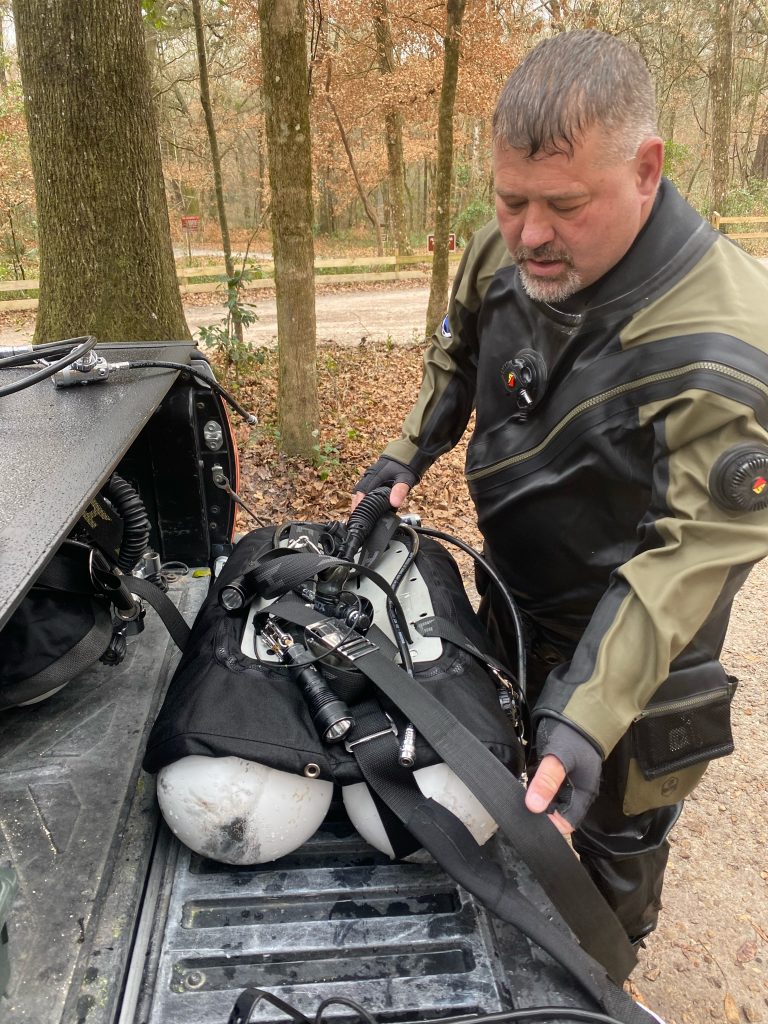
If you get a good instructor, a good, tough instructor in any agency, you can get a good cave class. But if you get a burned-out instructor, in any agency, you can get a bad cave class.
What I saw was certainly the cream of GUE rising to the top. I saw Meredith’s best work; her preparedness was point-on because of what she was going through. And I’ve been around her in other situations where she’s teaching and she does set the bar at a very high level for cave instruction. I’m very impressed with her. Very impressed.
I would say GUE’s courses are well suited to people that are very motivated, high-level achievers who love that team camaraderie. And if that personality type is who you are, I think GUE is a fantastic route for you to go. If that’s not the kind of personality that you have, then you might struggle within it.
“I would say GUE’s courses are well suited to people that are very motivated, high-level achievers who love that team camaraderie. And if that personality type is who you are, I think GUE is a fantastic route for you to go. If that’s not the kind of personality that you have, then you might struggle within it.”
So to say that it’s better than TDI, CDS, any of that, I can’t say that it’s better. Is it more intense? I would think, by and large, it is more intense. I do a lot of stressful stuff in my courses, but I don’t raise it to that level. I don’t know how I would’ve handled that if I hadn’t a lot of experience already. It wore on me over the days.
In my experience, GUE courses tend to be fairly intense. Heck, GUE is fairly intense. Ha!
Yeah, they are. But here’s one thing, I will say this. One of the debrief questions at the end of the first course was this: Do you consider yourself a GUE diver? And I said, no, I’m not a GUE diver, I’m a cave diver. I’ll dive with anybody, anytime, who’s safe and looks out for their buddy.
Now, at the end of the second course they didn’t ask that question so I told them, you should’ve asked me that question again. And Meredith said, “Okay, what would you say?” And I said, “I would’ve said, yes, I am.” Because there is something rewarding about being tested that hard, and receiving that credential. You earned it. You really earned that certification.
“Because there is something rewarding about being tested that hard, and receiving that credential. You earned it. You really earned that certification.”
I don’t know that I am a GUE diver, but will I dive with GUE guys? Sure. Do I think there is some of the bullshit that hangs over from the old days? Absolutely. There is still some of that under the surface that I see, but by and large I have met a lot of really good people.
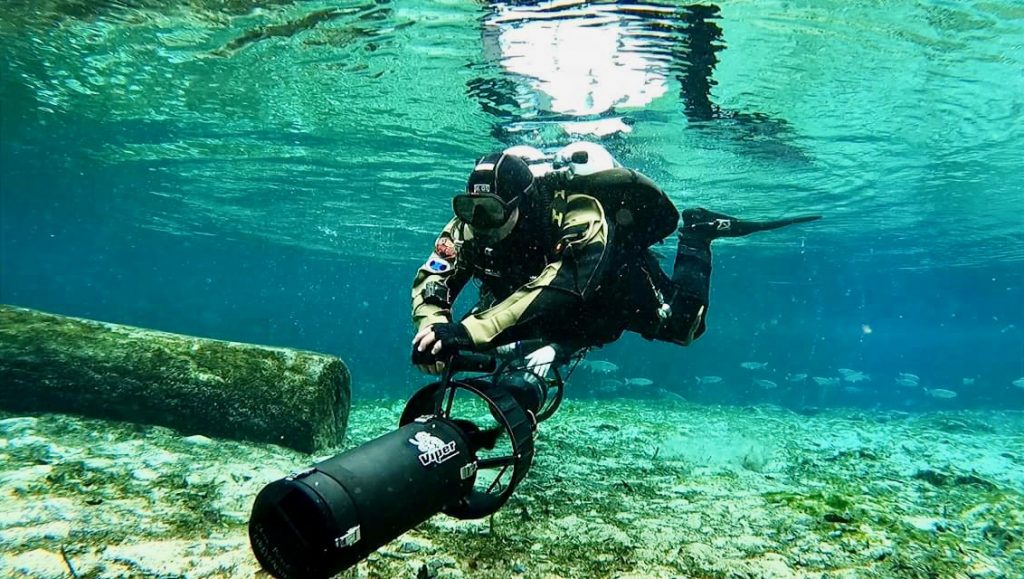
I find your take on the type of diver who might find GUE appealing interesting. In my younger years, I was like, 150% pushing all-out, all of the time to improve my diving. And now, I find that mindset just doesn’t fit me quite as well. I’m more like, “Yeah, yeah, yeah, can we just go diving?” Maybe it’s just old age, I don’t know. I think it may actually be a bit healthier for me to not to push all the time. You know what I’m saying? I’m just a little more chill.
I’m the same way, and that’s kind of why I would challenge them. I don’t know if Meredith spoke to this. She could’ve had a much easier IE if I hadn’t been there. I was the guy that was challenging her on every point while she was getting evaluated on her responses to every challenge I made, by Danny.
Ha! Right, some friend you are! Making it harder.
And Danny spoke about that in our debrief together. He said, “Chris, you brought a whole other perspective and Meredith had to defend what we do. That was good for her to have to defend it. Because you understand the various aspects of cave diving and are coming in and asking, “Why?” Tell me why because I’m not going to believe it on face value like a normal student who listens to the instructor say, “Do X, Y and Z,” and says, “OK,” instead of, “Why do you do it this way and not that?”
And I’m with you—I think that there is a personality type that fits GUE and there’s a personality type that doesn’t. And there’s a personality type somewhere in the middle that fits GUE sometimes but maybe not all the way. Perhaps that is me. Overall, I think it is a pretty solid program. I really do.
So you think there may be other GUE courses in your future?
I do. I’m looking forward to my next professional development course with GUE. Either Tech 1 with Meredith or possibly a DPV course with Danny. As an instructor in both of those areas I am curious as to how that content is presented as well.
“I do. I’m looking forward to my next professional development course with GUE. Either Tech 1 with Meredith or possibly a DPV course with Danny. As an instructor in both of those areas I am curious as to how that content is presented as well.”
Thanks Chris! Thanks for being willing to share.
Footnote by Meredith:
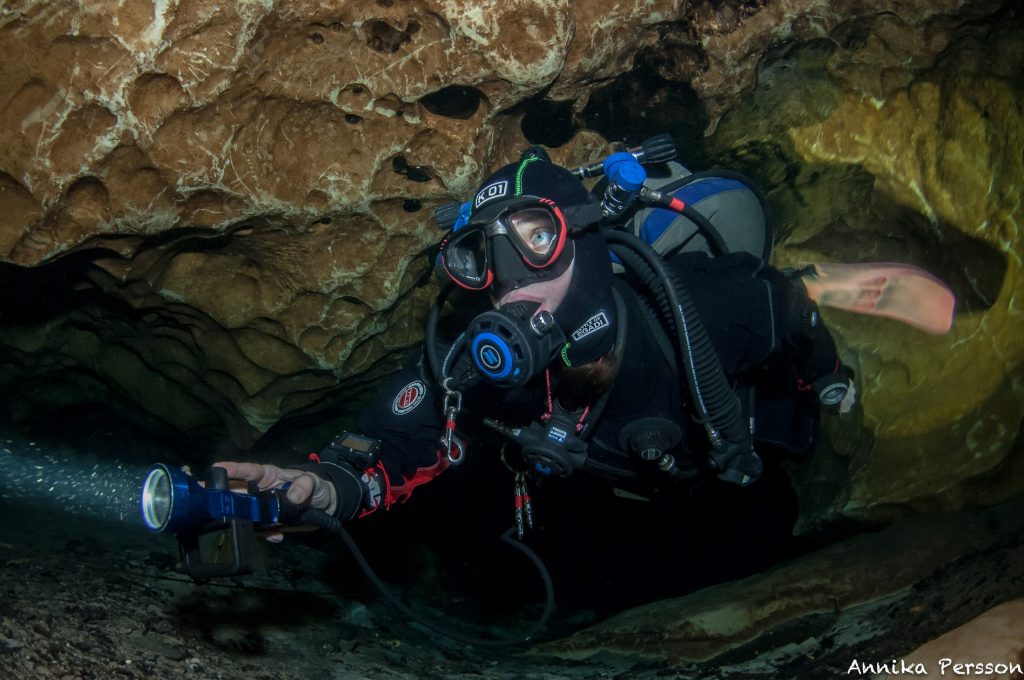
Appropriately challenging both “normal-track” Cave 2 students and a student with over 1000 cave dives in the same class most definitely added another layer of difficulty to my Cave 2 Instructor Exam class. It was certainly a challenge, and I like challenges, so I thank Team FIYD FIYD for that! [Ed.—Inside joke] Our job as instructors is to provide challenges to improve on each diver’s starting set of skills and help them become better and more efficient, even the ones that are already solid divers. This makes every GUE class different and customized for that unique team of students.
Dive Deeper:
Meredith Tanguay, principal Wet Rocks Diving
Chris Brock, principal, Cavediving.com
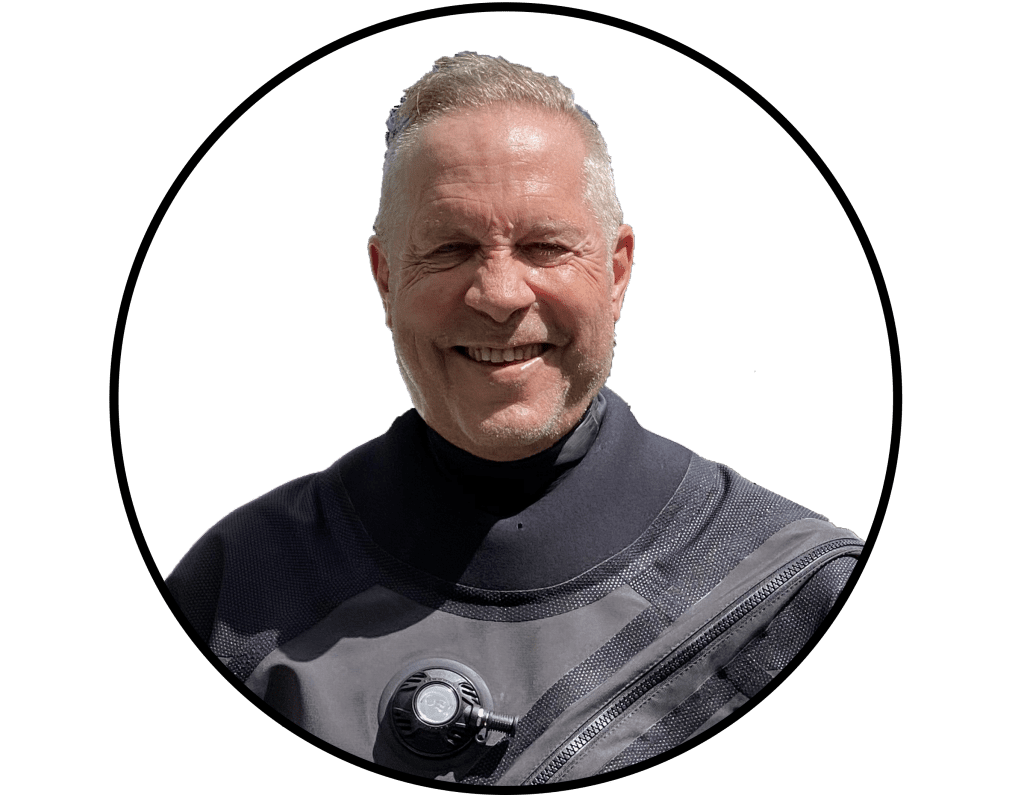
Michael Menduno/M2 is InDepth’s editor-in-chief and an award-winning journalist and technologist who has written about diving and diving technology for more than 30 years. He coined the term “technical diving.”
His magazine aquaCORPS: The Journal for Technical Diving (1990-1996), helped usher tech diving into mainstream sports diving and he produced the first tek.Conferences and Rebreather Forums 1.0 & 2.0. In addition to InDepth, Menduno serves as an editor/reporter for DAN Europe’s Alert Diver magazine, a contributing editor for X-Ray mag, and writes for DeeperBlue.com. He is on the board of the Historical Diving Society (USA), and a member of the Rebreather Training Council.

